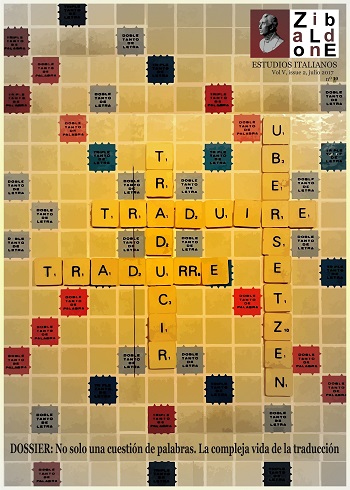Bagatelle about translated theatre
Keywords:
theatre, langauge, stage, translation Abstract
Abstract
In Italy, there is nothing in common, no harmony, between audience and stage, in particular, between language spoken out of the theatre and language pronounced on stage, in a way that playwrights often are compelled to invent their own language. In fact, Italian theater lacks a precise code of traditions able to shape the organic ground of recitation itself. These questions allow the author to reflect about theatrical language as in, for example, the case of a Venetian company that performs Danilo Kiš’ play, Consigli a un giovane scrittori, or the revision, among others, of the syncretic Esperanto used by Eugenio Barba.
 Downloads
Downloads
Downloads
Published
How to Cite
-
Abstract562
-
PDF (Español)196
Issue
Section
License

All contents of this electronic edition, except where otherwise noted, are distributed under a “Creative Commons Attribution 3.0 Spain” license (CC-by). You may read here the basic information and the legal text of the license. The indication of the license CC-by must be expressly stated in this way when necessary.
Self-archiving in repositories, personal webpages or similar, of any version other than the published by the Editor, is not allowed.



